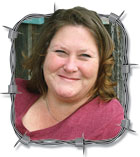Monte Ritchie – Part I
Americans are surely the most diversified people in the world. It is almost inconceivable that you could determine an interesting subject on which almost everyone can agree is, actually, interesting.
I believe there is, though, one subject that is interesting to other people; that being – other people.
Therefore, meet Montgomery H.W. Ritchie.
Monte was a slim, wiry man, with jutting jaw and a black mustache. His step was quick. If he arose later than an hour before sun up, his day was ruined. He spoke with a strong British accent, piloted his own plane, and belonged to several New England men’s clubs.
In many ways he was the most unusual man I ever knew. He was owner of a ranch that covered a million Texas Panhandle acres.
Although he was born of wealthy parents, though he never saw a cow or bull or a horse, rope, bridle or saddle until he was 21 years old, Monte could get as dirty and sweaty, brand a cow or saddle, break and ride a range bronc fully as well as any cowboy who ever called himself a JA cowpoke.
Ritchie’s ranch, the JA, is almost as old as the history of the Texas cow country. His step-grandfather, John Adair, an Irish financier, made a deal with one Col. Charles Goodnight whereby they started the JA in 1876. When Adair died, Ritchie’s grandmother actively managed the holdings, at that time about one million acres, and later turned the reins over to her son, Dick, who was Monte’s father.
The JA lies half in, half out of the Palo Duro Canyon, which gives birth to the storied Red River. JA cattle, some 10,000 or more at the ranch's prime, graze buffalo grass and grama grass on the high plains in the summer and live on bluestream and salt grass in the brakes of the canyon during the winter.
Monte Ritchie was not a man to treat lightly.
The first time I met him, he caused me to hate him thoroughly. I walked into his office, told him I was there to do a story for a magazine, and he fairly bristled.
“I didn’t give permission for you to come on my ranch,” he snapped. “This is my property.”
Considerably abashed, I explained that he had given me permission through his ranch foreman. He shook his head. “You are wrong. I’m busy and have no time to fool with you.”
I explained that writing such a story as the one I proposed was not under the heading of “foolishness.”
After vigorous pleading, done with red face, pounding heart and taut nerves, Ritchie agreed to give my case further consideration. “Come back tomorrow,” he said. “I’ll give you a decision then.”
After driving a thousand miles because he had once said come on, it was with much anger that I drove off those desolate plains another hundred miles to a motel. But the next morning Ritchie appeared somewhat mortified. He consented to the story and invited my photographer and me to dinner that night.
Dinner at the ranch house, out on the plains, was a strange event. If you ever saw the movie, “Giant,” you might picture the gaunt Benedlot mansion, gigantic but reduced to miniature in that red space, as the JA headquarters. Inside this monstrous house were elaborate furnishings. Paintings of the old masters lined the walls. I had the feeling of that I was not in the middle of the Staked Plains, but in some European mansion.
Ritchie was a gracious host. He had a fine cook, of whom he lived in mortal fear… fear that she might leave him and he would have to live without the fine cuisine of which he was so fond. What I discovered of his discreet handling of the cook, Mrs. Hicks, was to prove most interesting.





